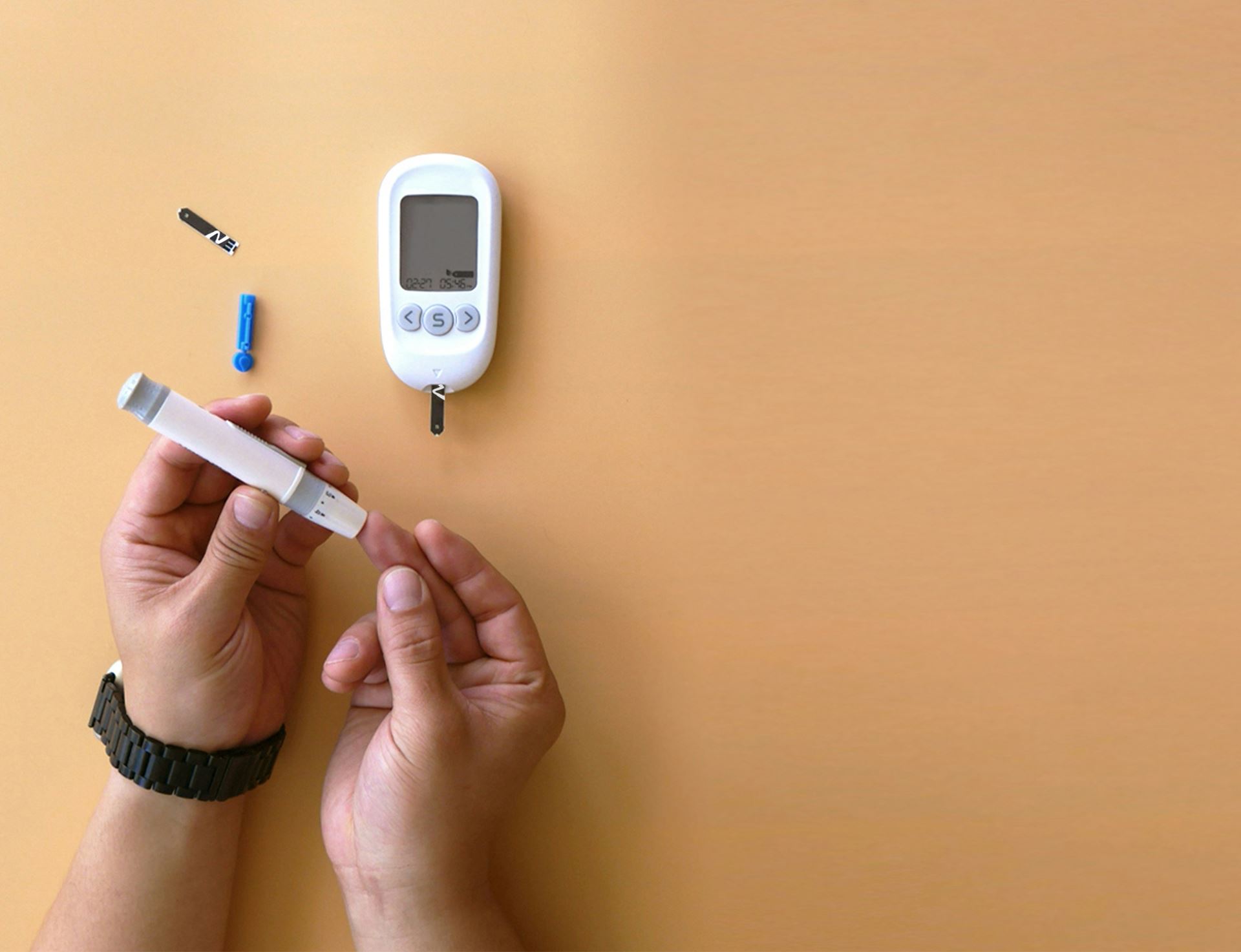Diabetes
Diabetes is a long-term condition caused by too much glucose (sugar) in the blood. It is also known as diabetes mellitus. The two most common types of diabetes are type 1 and type 2 but there are others such as Gestational Diabetes (develops during pregnancy).
According to the charity Diabetes UK, more than two million people in the UK have the condition and up to 750,000 more are believed to have it without realising they do.
The sooner the blood sugar levels are brought under control, the better the long-term prospects of preventing damage. Lifestyle advice about diet, weight management and regular activity is the first step.
New To Type Two
The New to Type Two programme is an important step on the road to managing health and wellbeing following a diagnosis of type two diabetes. It is available to anyone within their first year of diagnosis and provides in-person information, advice, and support through group sessions led by a diabetes specialist nurse and a diabetes dietitian. These sessions can be attended either face-to-face or online, depending on your preference.
You need to be referred to the programme—this should ideally happen at the time of your diagnosis. If you’re unsure whether you’ve been referred, or if you think you may have missed the referral, please contact the team for support.
ReFocus
ReFocus is a partner programme to the New to Type Two programme. It is delivered by specialist nurses and dietitians and is aimed at people who have had a diagnosis of type two diabetes for more than one year. The programme serves to revisit and refresh the information people receive at diagnosis.
Click the link below to find out more or to book onto a session.
Within Your Surgery
Within your surgery, you will have dedicated practice nurses who are passionate about providing exceptional diabetes care. This includes spotting the signs of pre-diabetes and offering prevention advice, as well as caring for you after a diabetes diagnosis. Our practice nurses also conduct annual diabetes reviews.

Diabetes reviews
As part of your annual review, you should have:
A blood test where enough blood is taken to be sent to the lab to check your:
- HbA1c (your average blood sugar levels for the past three months)
- Cholesterol levels (how much fat is in your blood)
- How well your kidneys are working
You should be asked to provide a urine sample that is sent to the lab to check:
- For any kidney damage
At the appointment you should also have:
- A foot check (done once every two years if your last check showed no problems)
- Your weight and height measured to work out your Body Mass Index (BMI), to see if you're a healthy weight for your height
- Your blood pressure measured.
Regular care to expect
Everyone living with diabetes should have these diabetes checks and tests every year. If there are any that you haven’t had in the last year, speak to your healthcare team.
Each year, everyone with diabetes should have:
- An HbA1c test, which checks your average blood sugar levels over the last three months.
- A blood pressure check, a cholesterol test to check your blood fats, and blood and urine tests to check how well your kidneys are working.
- A review of your weight and BMI
- Eye screening to check for signs of diabetic retinopathy, which is a complication of diabetes. But this might be every other year if your previous checks were fine.
- A foot check to make sure you don’t have problems with nerves or circulation in your feet. This may be once every other year if you live in Scotland and are at low risk for foot problems.
- A review and update of your agreed diabetes management plan.
- A review of the diabetes knowledge you already have and would like to have.
- If you have type 2 diabetes, advice about your diet from a dietitian, and weight monitoring.
It is still important to attend your primary care diabetes annual review even if you are being closely monitored by secondary care, as secondary care will not offer diabetes reviews in the same depth as primary care will.
Diabetes Prevention Programme
The NHS Diabetes Prevention Programme supports people at risk of developing type 2 diabetes to take control of their health. If you’ve been identified as having pre-diabetes or a high risk of type 2 diabetes, you may be eligible for this free programme. You can get help to make positive changes to your diet, weight, and physical activity — all proven to significantly reduce your risk.
Find out if you’re at risk of developing type 2 diabetes by doing any of the following:
-
Answering a few simple questions using the ‘Know Your Risk’ tool
-
Taking up the offer of a free NHS Health Check (available for those aged 40–74)
-
Asking your GP Practice to check your risk
If you are at risk, your GP Practice may refer you to the Healthier You NHS Diabetes Prevention Programme.
Find out more -NHS Diabetes Prevention
Useful links
Type 1 Diabetes
Useful information and references relating to Type 1 Diabetes
Diabetes UK
Largest charity in the UK devoted to the care and treatment of people with diabetes in order to improve the quality of life for people with the condition
NHS Choices
Further information about symptoms, treatment, causes and prevention of Diabetes
Page created: 17 June 2024
